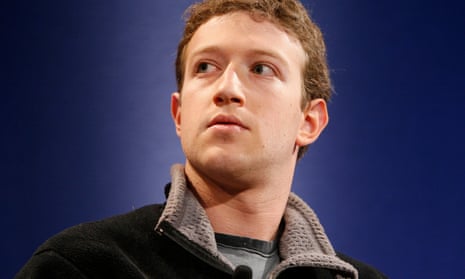Social networks spent much of 2017 slowly coming to terms with the extent to which their platforms had been exploited to spread political misinformation. But the narrow focus of investigations over the last year is likely to cause further pain in 2018, as the US midterm elections create a new urgency for the problem to be solved.
At the beginning of this year, Facebook was hostile to the suggestion that it may have played an unwitting part in a foreign influence campaign. After the election of Donald Trump, Mark Zuckerberg, Facebook’s chief executive, described the suggestion that his site may have swayed voters as a “crazy idea”, despite evidence that hoaxes and lies had been spread on the social network during the campaign. (He later apologised for the comment, saying it was “dismissive and I regret it”.)
By April the company had changed its tune, publishing the findings of a lengthy investigation into “information operations and Facebook” that described all the “subtle and insidious forms of misuse” that could occur on the site, “including attempts to manipulate civic discourse and deceive people”.
One thing missing from that white paper was the identity of the malicious actor. It later emerged that the company had cut mentions of Russia from the document before publication owing to legal concerns. In a follow-up blogpost in September it had no such qualms: the company revealed the extent of Russian interference for the first time, noting that it had found almost 500 inauthentic accounts and pages that altogether had spent $100,000 on ads.
From there the story snowballed. In October the company shared further information about the ads and how many people had seen them (126 million at the latest count), and it testified alongside Google and Twitter at a hostile committee hearing at the US Congress.
Twitter, too, had to reveal some uncomfortable truths. It released a list of more than 2,700 accounts it believed were run by the Internet Research Agency, a St Petersburg-based “troll army”. It also had an embarrassing spat with the Russian news organisations Sputnik and RT over whether or not the millions of dollars it took in advertising from the state-owned broadcasters amounted to foreign interference. It eventually donated the cash to fund academic research into elections and civil engagement and banned the organisations from further advertising.
Google, for its part, has emerged remarkably clean. Despite the search engine’s well-documented fake news problem – it has regularly placed questionable reporting or outright falsehoods at the top of its search results for breaking news events – the company apparently avoided being specifically targeted for manipulation by the Internet Research Agency.
As 2017 winds to a close, Facebook could be forgiven for thinking its problems are behind it. But two big concerns still lie ahead, threatening to drag the issue back on to the front pages in the new year.
Firstly, the fear of Russian misinformation has gone international, and Facebook is making unforced errors in its response. Circumstantial evidence suggests Russian influence campaigns were far more widespread than just the US, with votes in France, Germany and the UK all affected to a greater or lesser extent.
But whereas the social network’s response in the US was a months-long investigation culminating in the handover to Congress of a significant amount of data, in the UK the company has been accused of fobbing off parliament with a lazy repetition of its previous findings.
“It would appear that no work has been done by Facebook to look for Russian activity around the EU referendum, other than from funded advertisements from those accounts that had already been identified as part of the US Senate’s investigation,” said the Tory MP Damian Collins, chair of the select committee that is pushing Facebook for answers on this matter.
“No work has been done by Facebook to look for other fake accounts and pages that could be linked to Russian-backed agencies and which were active during the EU referendum, as I requested.”
And then there is November. The US midterms will be the first serious test of Facebook’s commitment to fixing its platform. The company has promised changes to its political advertising products to increase transparency, as well as enforcement of rules limiting spending to Americans only. But it has not yet had to enforce those rules on a grand scale, over hundreds of separate races happening simultaneously.
If it fails to stick the landing then the whole cycle will begin again.








